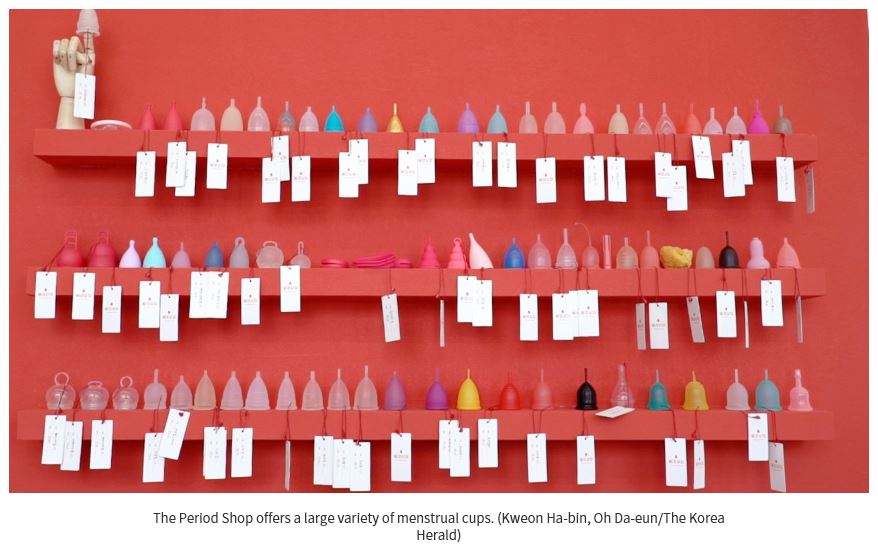
South Korea’s first store dedicated to raising awareness about menstruation opened in Seoul earlier this year as part of efforts to fight the long-held stigma around periods and to give women more eco-friendly choices.
The Period Shop, which opened in January near Daebang Station in Seoul, is a space for customers to openly explore, discuss and purchase period products.
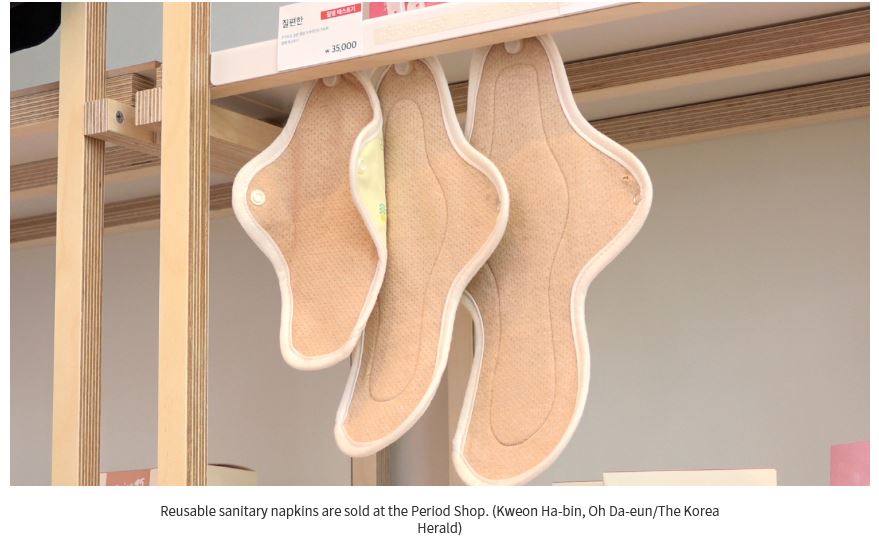
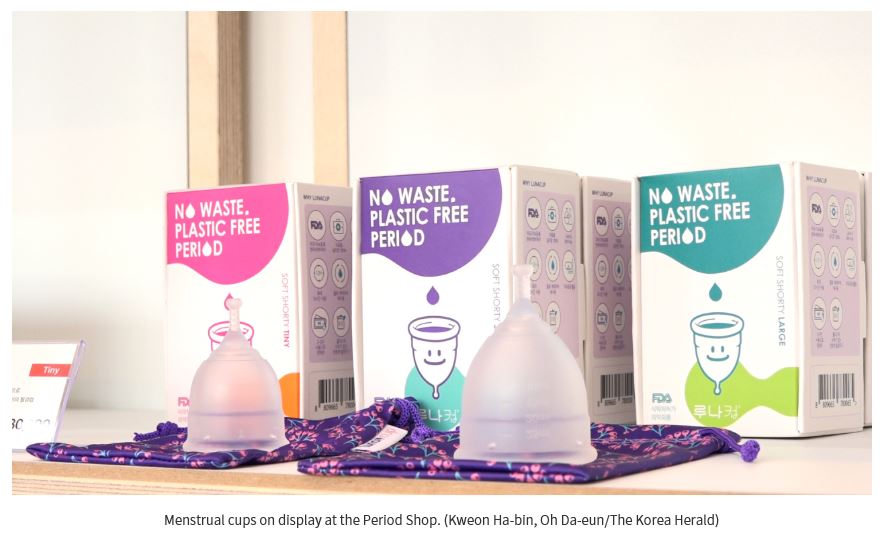
It offers a variety of sustainable menstrual products ranging from menstrual cups, reusable pads to washable period panties.
Other items women might need to relieve their stress, pain and improve conditions before, during and after their menstrual cycles are also on sale, including plastic-free shampoo bars, aromatic tea, heating pads and nutritional supplements.
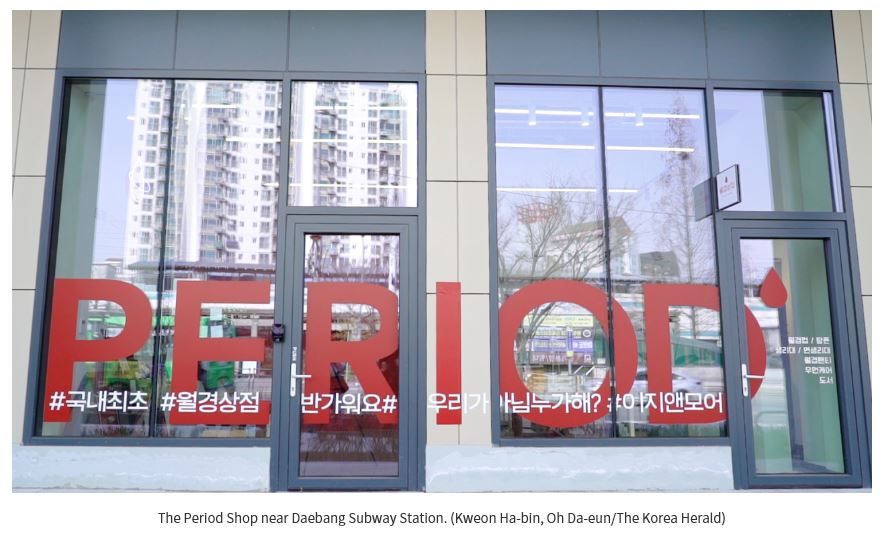
“Customers visiting the Period Shop are interested in what sanitary pads are made of and finding products that have less impact on the environment,” said Kim Min-ji, customer communicator at the Period Shop.
Customers have been the most interested in menstrual cups and reusable period underwear, she said.
“It is difficult to wash period panties or cloth pads, but they can be used nearly permanently, easy to be used and are better for our health and the environment,” she said. “For the same price, customers tend to choose a more eco-friendly option such as biodegradable pads.”
Menstruation is often costly and wasteful as most women in Korea opt for single-use, non-biodegradable pads during their period.
As of 2017, some 81 percent of women used disposable sanitary pads during their period, according to the Ministry of Food and Drug Safety.
Considering a woman bleeds for about a week every month over the course of a life time, an estimated 2 billion non-biodegradable pads are being thrown away each year in Korea alone.
Scientists say it takes nearly 500 to 800 years for sanitary pads to decompose.
Menstrual cups, on the other hand, are reusable and can last up to three years, which means it produces less waste and costs less money.
“Using a menstrual cup means that we can save few billions of sanitary pads from being burned or ending up in landfills (as waste),” she said.
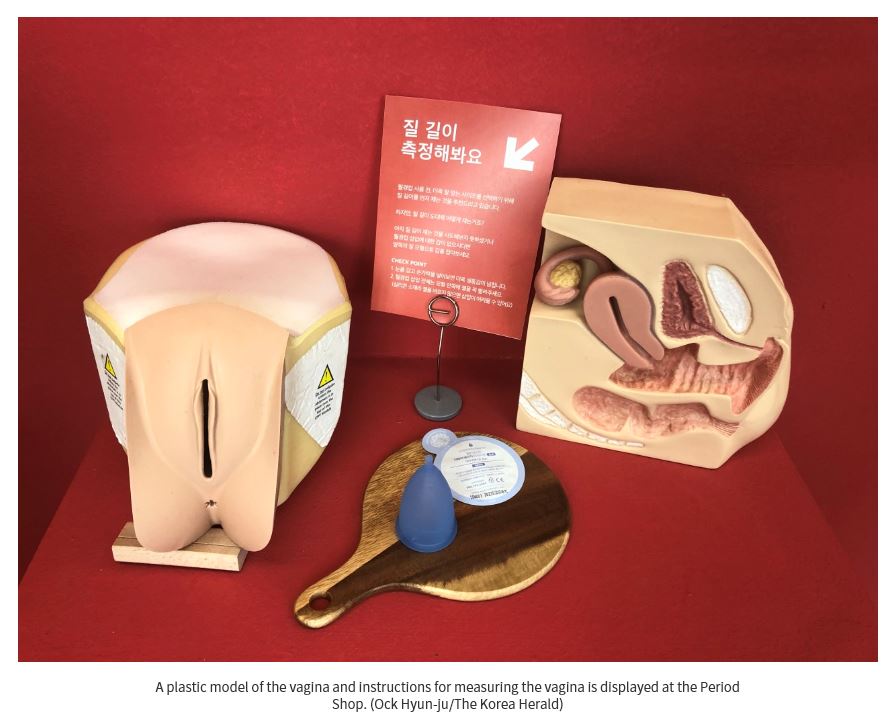
In the shop, some 60 different kinds of menstrual cups were on display against a red wall. Beneath them were plastic vagina models, a mirror and tips on how to measure the length of one’s vagina to find the right period cup size.
“I was positively shocked about this place that it has various types of period cups as well as other period products I had not known about,” said Lee Ju-yeon, a customer who was perusing through the menstrual cups on display at the shop.
Lee said that she had not given the environmental impact of disposable pads a serious thought because she is too used to the monthly ritual.
“But for the environment, I think it would be helpful to use menstrual cups or other (eco-friendly) products,” she said, adding that she is open to using the cups once she learns more about it.
And yet, the Period Shop appears to be much more than just a pop-up store offering women eco-friendly, healthier options for their menstrual cycle.
In Korean society where talking about menstruation is widely considered a taboo and is often referred to with euphemisms, the shop symbolizes a broader effort to promote women’s rights -- the right to know, right to choose and right to be themselves.
“When you go to convenience stores in Korea to buy period pads, they usually give you black plastic bags to cover them up. I know they are trying to be thoughtful, but I often think why we should be hiding these items,” Lee said.
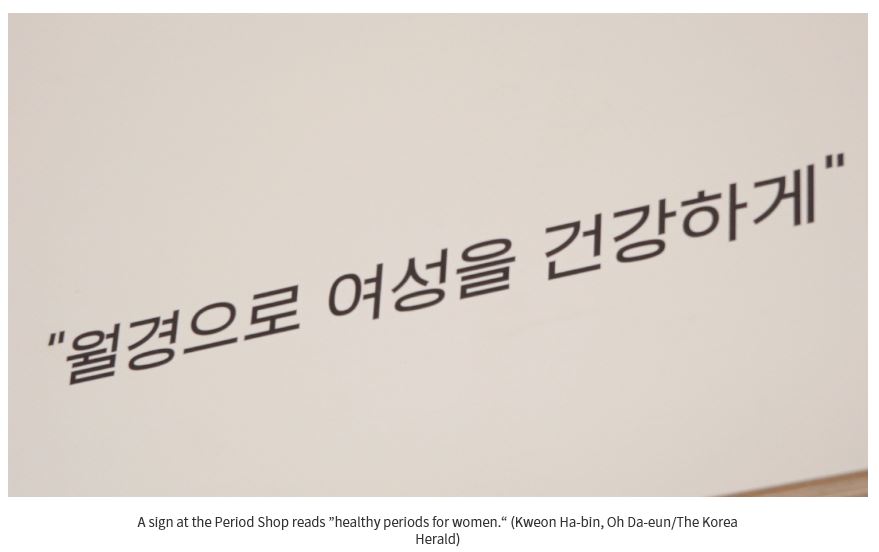
The store itself is an attempt to reshape the perception that periods are painful, shameful and dirty.
“Our goal is to bring menstruation out into the open and to promote understanding it is a very natural phenomenon in women’s bodies that does not have to be hidden,” Kim, the shop staffer, said.
“We hope to let people know menstruation is more than just a week when women bleed,” she said.
Run by a social impact startup Ease & More, the Period Shop is open every day from 11 a.m. to 8 p.m. except for Sundays, Mondays and public holidays. It is easily accessible from Daebang Subway Station exit 2.
http://www.koreaherald.com/view.php?ud=20210326000889&np=1&mp=1